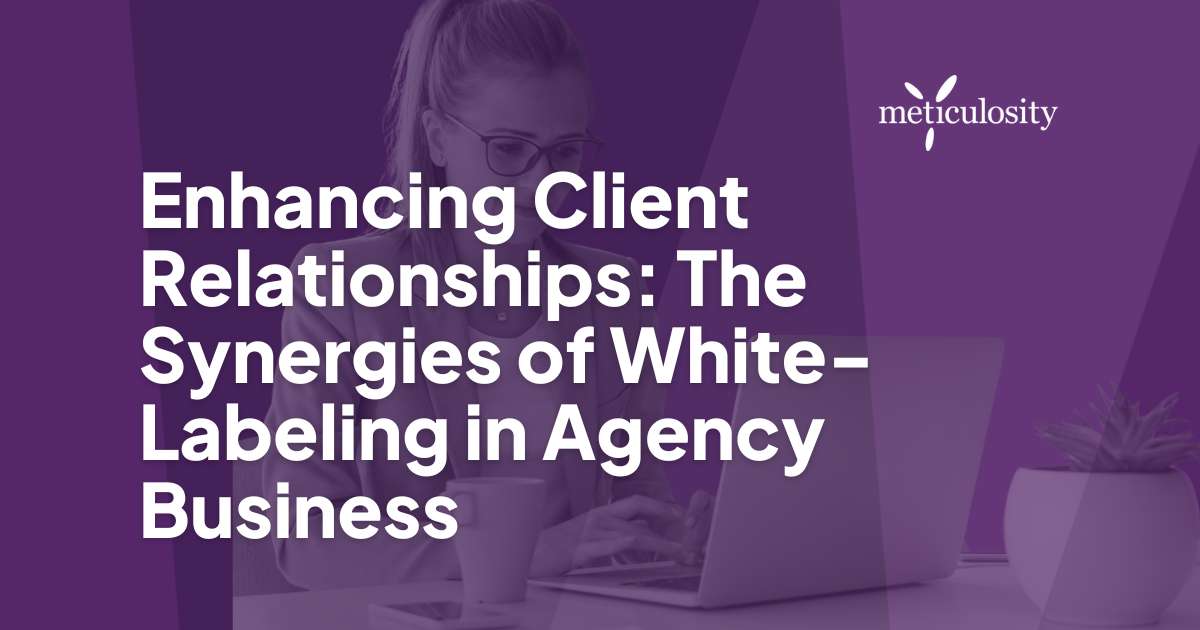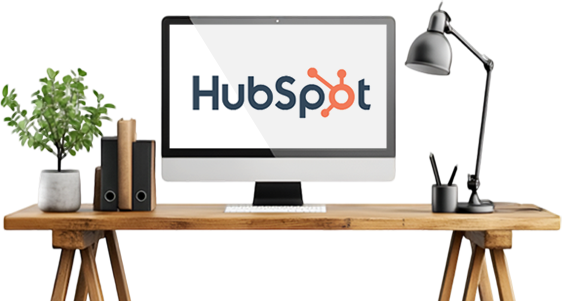Building strong client relationships is a challenge faced by many of us in the agency world. It's almost like trying to solve a complex puzzle where each piece represents a different aspect of client trust and satisfaction.
In this article, we'll peel back the layers of white-labeling as an effective strategy—from smoothing out your workflows to increasing overall contentment among your clients.
Key Takeaways
- White-labeling lets agencies sell other companies' services with their brand, saving money and time.
- Clients like white-labeling because it gives them quick, personalized solutions that fit their brand.
- To keep clients happy with white-label products, make sure to talk clearly about what they can expect and improve your service by listening to what they say.
- It's important to work well with the partner who makes your white-label products. You want someone you can trust and who does good work.
- When you use white-labeling right, your business can offer more services, keep clients longer, and make more money.
Understanding White-Labeling and its Benefits
White-labeling is a process where an agency provides its services to another company, rebranding and selling them as their own. The benefits of white-labeling for agencies include cost-saving, time-saving, and reduced technical expertise, while clients can enjoy customization, personalization, and faster turnaround.
Definition of White-Labeling
White-labeling is like putting your brand's label on a product made by someone else. It lets companies sell things or services without having to make them from scratch. Imagine you own a marketing agency and buy social media management tools from another company.
You can put your agency's name on these tools and offer them as your own to clients.
This process helps with branding partnerships, service customization, and client satisfaction. Agencies benefit because they don't need the big resources to create new products or services.
Clients love it because they quickly get what feels like a personalized solution, boosting their trust in your business.
Benefits for Clients: Customization, Personalization, Faster Turnaround
So, while agencies enjoy cost-saving and time-saving perks, there's another side to white-labeling that truly shines: the amazing benefits for clients. They get products and services tailored just for them, with a personal touch and without waiting long.
- Tailored Solutions: Clients love feeling special. White-labeling lets you create something just for them. It might be a website or an app that fits what they need, like a glove. This way, they don't get stuck with something made for everyone; they get something that's all theirs.
- Personal Touch: Adding personal features shows clients you care about their needs. Maybe it's their logo popping up in just the right spot or colors that match their brand perfectly. These details make clients feel at home with the product.
- Fast Service: Clients also want things done yesterday! With white-labeling, you can skip building from scratch and use ready-made solutions. This means clients get what they need fast, often way ahead of when they expected it.
- Easy to Change: Sometimes, clients change their minds or need updates quickly. The good thing about white-label products is you can make changes easily. Clients appreciate this flexibility and the ability to adapt quickly without drama or delays.
- Consistent Experience: Regular people can tell when something feels off-brand. White-label services help keep everything looking right on target. So when clients hand these out to their customers, it blends seamlessly with their existing look and feel.
Looking to empower your agency? You can learn more here.
Building Strong Client Relationships through White-Labeling
By utilizing white-labeling, agencies can increase efficiency and scalability, resulting in faster service delivery and a more personalized experience for clients. This leads to greater trust and credibility through consistent quality, ultimately strengthening client relationships.
Increased Efficiency and Scalability
White-labeling can help agencies to increase efficiency and scalability in delivering services to clients. By leveraging white-labeling, agencies can streamline their processes, reduce turnaround times, and handle a larger volume of work without compromising quality.
This allows for better resource management and the ability to scale operations according to the growing needs of the business or client base.
Implementing white-label solutions also enables agencies to focus on core competencies while outsourcing non-core activities such as design, development, or marketing. This results in improved productivity and resource allocation, leading to more efficient service delivery and overall business operations.
Trust and Credibility through Consistent Quality
Building trust and credibility is crucial for any business relationship. Consistent quality in the services offered through white-labeling plays a pivotal role in establishing and nurturing this trust.
It assures clients of reliable outcomes, reinforcing their confidence in the agency's capabilities and dedication to delivering top-notch results consistently. Quality becomes synonymous with the brand representation as clients experience seamless service delivery that aligns with their expectations and enhances their brand value.
This consistent provision of high-quality services not only fosters strong client relationships but also positions the agency as a trustworthy partner committed to meeting and exceeding client needs.
Choosing the Right Approach
When it comes to white-labeling, agencies need to consider whether they want to fully rebrand a product or service (white-labeling) or collaborate with the original brand on co-branding.
Finding the right partner and approach is crucial in creating a successful white-label strategy that benefits both the agency and its clients.
White-Labeling vs Co-branding
Understanding the distinction between white-labeling and co-branding is essential for agencies looking to expand their offerings while maintaining strong client relationships. Both strategies have their place in your marketing toolkit.
|
|
|
|
Products or services are rebranded and sold as the agency's own. |
Two brands come together to create a jointly-branded product or service. |
|
Client-facing materials bear the agency's brand exclusively. |
Marketing materials feature both the agency's and the partner's brands. |
|
Agencies can fully integrate the product into their suite of services. |
Both brands must agree on the level of integration and messaging. |
|
Focuses on building the agency's brand equity. |
Leverages the equity of both brands to enhance perceived value. |
|
Ideal for agencies wanting to broaden their services without extensive development. |
Suitable for agencies aiming to capitalize on the reputation of a partner brand. |
|
Requires significant trust in the white-label provider's consistency and reliability. |
Depends on a strategic alignment between the two brands’ values and audience. |
|
Clients are often unaware of the third-party involvement. |
Clients recognize the partnership and the added value it brings. |
Finding the Right Partner
Choosing the right partner for white-labeling is crucial. Look for a partner who aligns with your brand values and can deliver quality results. Research their track record, expertise, and client satisfaction to ensure they meet your standards.
Consider communication, workflow, and overall collaboration style compatibility to build a successful long-term partnership. Seek transparency and mutual understanding of goals to establish a strong foundation for the relationship.
Finding a partner who can adapt to your needs while bringing value to the table is important. Assess their capabilities in meeting deadlines, handling customizations, and maintaining consistency across projects.

Tips for Successful White-Labeling in Agency Business
Utilizing White-Labeling for Expanded Service Offerings
White-labeling allows agencies to expand their service offerings and cater to broader client needs. Here are some ways in which white-labeling can be utilized for expanded service offerings:
- Diversifying Services: By white-labeling complementary services, agencies can offer their clients a more comprehensive suite of solutions, meeting more of their needs under one roof.
- Tapping into New Expertise: Partnering with other agencies or providers through white-labeling allows access to specialized skills or resources that an agency may not have in-house.
- Interdisciplinary Collaboration: White-labeling fosters collaboration across different specialties, enabling agencies to combine forces and offer integrated solutions that address complex client challenges.
- Scaling Capacity: Leveraging white-labeled services can help agencies scale up quickly to meet increased demand or take on larger projects without overextending internal resources.
- Customized Bundling: Agencies can create customized bundles of services by integrating white-labeled offerings alongside their core competencies, providing tailored solutions for different client segments.
- Strengthening Niche Offerings: White-labeling enables agencies to bolster niche offerings by supplementing them with related services from specialized partners, enhancing the overall value proposition.
Maintaining Quality and Consistency
To ensure the success of white-labeling in agency business, it's crucial to maintain quality and consistency in all deliverables. This involves establishing clear quality standards and adhering to them throughout the process.
Regular evaluations and feedback loops help identify areas for improvement, ensuring that the services or products meet client expectations. Consistency also plays a vital role in building client trust and credibility, ultimately contributing to enhanced client retention and satisfaction.
By maintaining quality and consistency, agencies can maximize the benefits of white-labeling while fostering strong client relationships.
Continuous monitoring of service delivery is essential for upholding quality and consistency in white-labeled offerings. This allows for adaptive adjustments based on feedback from clients, ensuring that their needs are consistently met at the highest standard possible.
Overcoming Challenges
Dealing with client expectations and managing relationship boundaries can be challenging when white-labeling in agency business. It's important to navigate these challenges effectively to maintain strong client relationships.
Dealing with Client Expectations
When managing client expectations in white-labeling, it's crucial to establish clear and realistic communication from the start. Set transparent guidelines regarding deliverables, timelines, and quality standards.
Regular updates on project progress can help manage client expectations effectively. It's also important to actively listen to client's needs and concerns, addressing them promptly to ensure satisfaction and build trust in the partnership.
Remember that managing client expectations is an ongoing process requiring open communication channels and a deep understanding of their unique goals and priorities. By proactively addressing any issues or concerns, agencies can strengthen their relationship with clients while delivering exceptional results.
Managing Relationship Boundaries
In managing relationship boundaries, setting clear expectations and parameters with clients when engaging in white-labeling is crucial. Communicating openly about the extent of services provided and the level of involvement expected from both parties helps prevent misunderstandings.
Establishing boundaries that respect each party's roles and responsibilities is essential while ensuring collaboration remains productive and respectful.
Setting clear boundaries also involves being transparent about limitations, potential conflicts, and any constraints that may arise during the partnership. By maintaining open communication channels, addressing concerns promptly, and collaborating harmoniously within defined boundaries, we can build stronger client relationships based on trust and mutual understanding.

Conclusion
In conclusion, white-labeling in agency business holds immense potential for enhancing client relationships. By leveraging the benefits of white-labeling, agencies can offer customized solutions and build trust with their clients.
The strategic implementation of white-labeling fosters stronger partnerships and opens doors to increased revenue and expanded service offerings. Ultimately, mastering the art of white-labeling can be a game-changer in empowering agencies to deliver exceptional value while nurturing long-term client relationships.
Click here to learn more about agency marketing.
FAQs
1. How does white-labeling contribute to enhancing client relationships for marketing agencies?
-
- Single-Point Accountability: White-labeling allows agencies to act as a single point of accountability for clients, streamlining communication and fostering stronger relationships.
- Consistent Service Quality: Clients benefit from consistent service quality as agencies leverage the expertise of white-label partners who adhere to established standards.
- Holistic Solutions: White-label services enable agencies to offer comprehensive solutions, enhancing client satisfaction and building long-term relationships.
2. Can white-label services provide marketing agencies with the flexibility to tailor solutions to meet the unique needs and preferences of their clients?
-
- Customization of Services: White-label partnerships allow agencies to customize services, ensuring that solutions are tailored to the unique needs and preferences of each client.
- Niche-Specific Expertise: Agencies can tap into niche-specific expertise through white-labeling, offering clients specialized solutions that address their specific challenges and goals.
- Adaptability to Client Demands: White-labeling provides flexibility, allowing agencies to adapt quickly to changing client demands and preferences.
3. How does white-labeling contribute to the overall efficiency and responsiveness of marketing agencies in serving their clients?
-
- Quick Resource Scaling: White-label services enable agencies to scale resources quickly based on client demands, ensuring efficient project handling and responsiveness.
- Access to Specialized Expertise: Agencies can tap into specialized expertise through white-label partnerships, enhancing their ability to provide prompt and expert solutions to clients.
- Adaptability to Changes: White-labeling provides agility, allowing agencies to adapt quickly to changes in client requirements and industry dynamics, ensuring a high level of responsiveness.
4. In what ways can white-label services contribute to building trust and long-term partnerships with clients?
-
- Consistent Quality Assurance: Clients benefit from consistent quality assurance as agencies maintain control over the overall service delivery, fostering trust in the client-agency relationship.
- Direct Client Interaction: Agencies can maintain direct client interaction, ensuring transparency and communication that are essential for building trust and long-term partnerships.
- Client-Centric Innovation: White-label partnerships enable agencies to bring innovative solutions to clients, demonstrating a commitment to their success and contributing to the development of long-lasting partnerships.
White-label services provide marketing agencies with the tools to enhance client relationships by offering consistent, customized, and responsive solutions that contribute to trust-building and the development of long-term partnerships.








